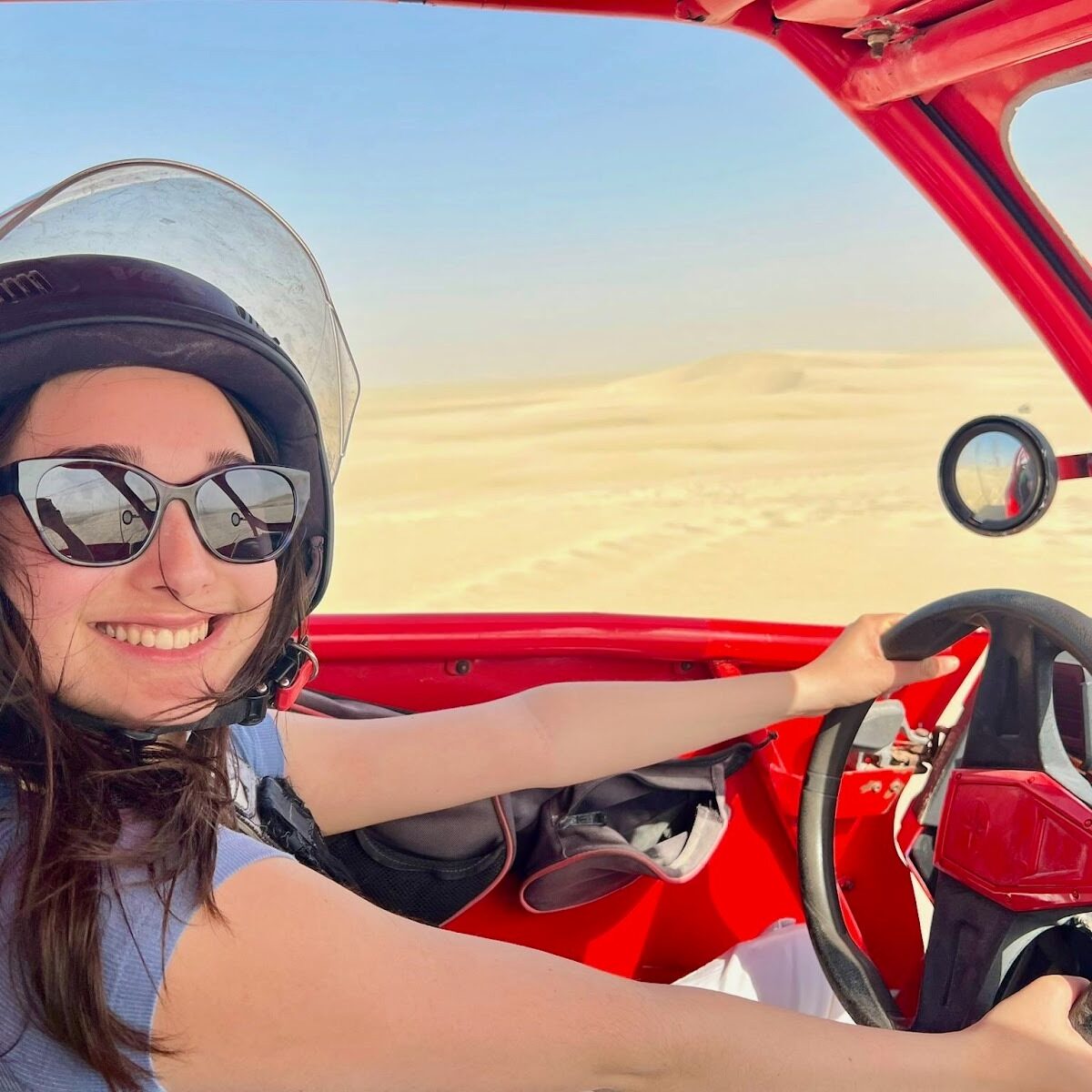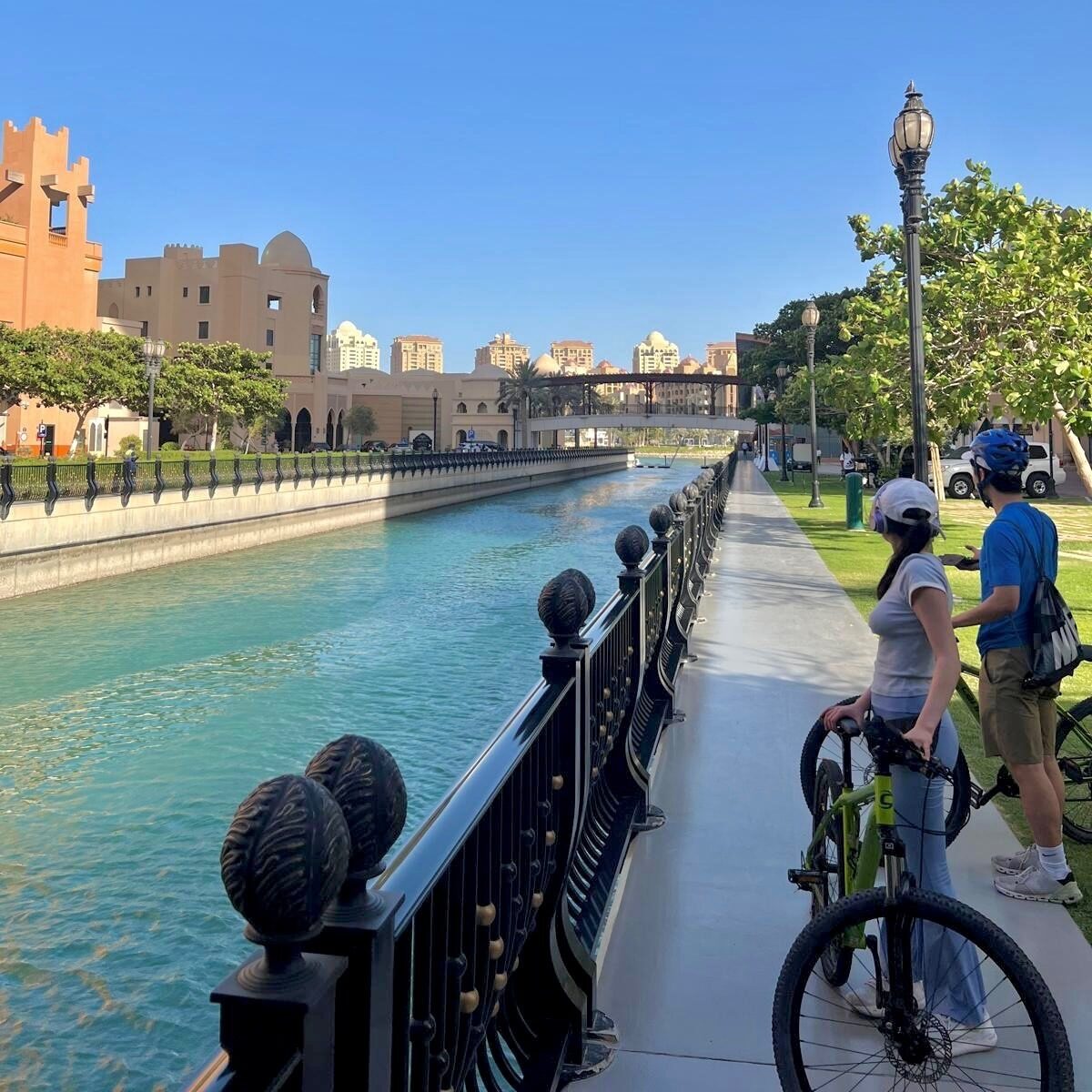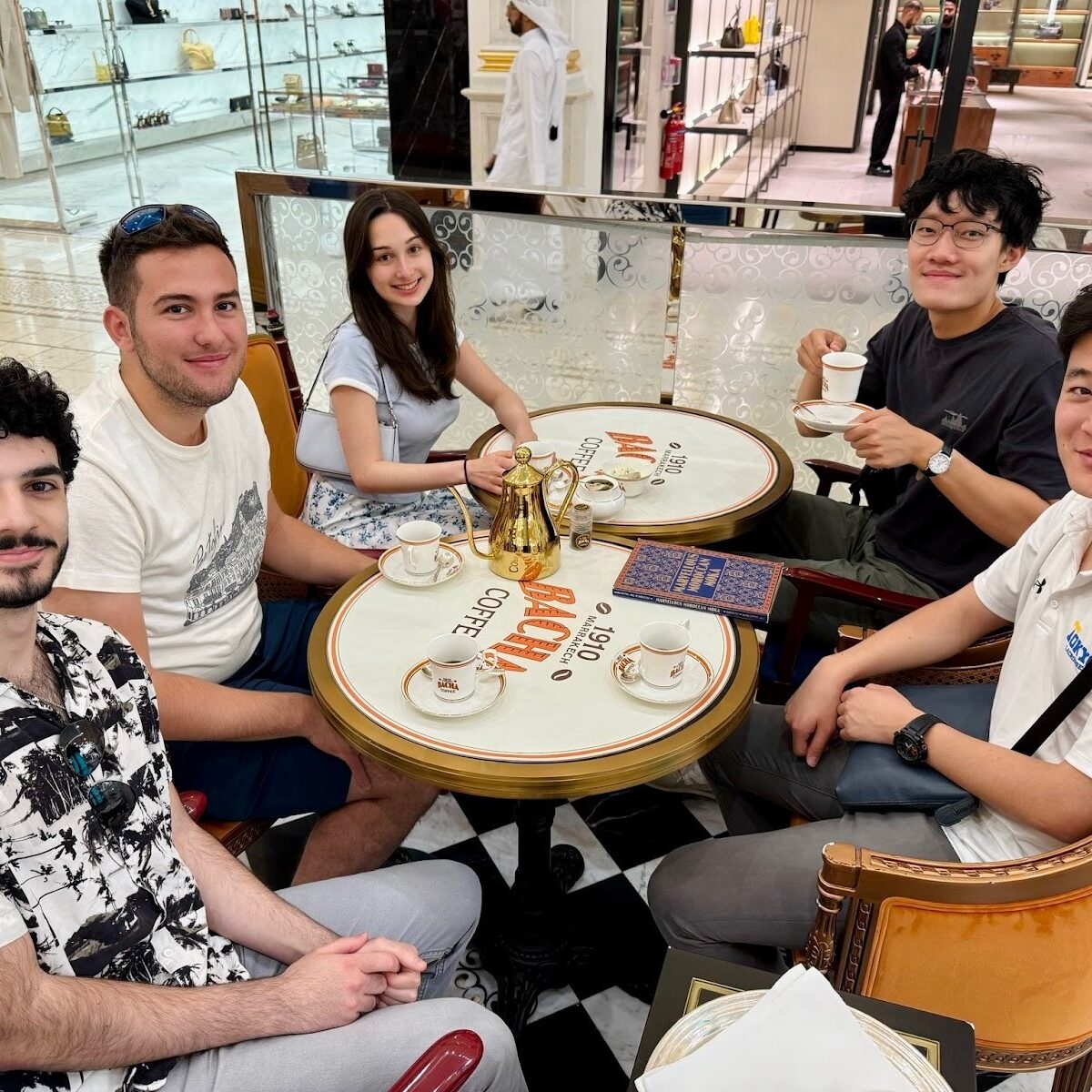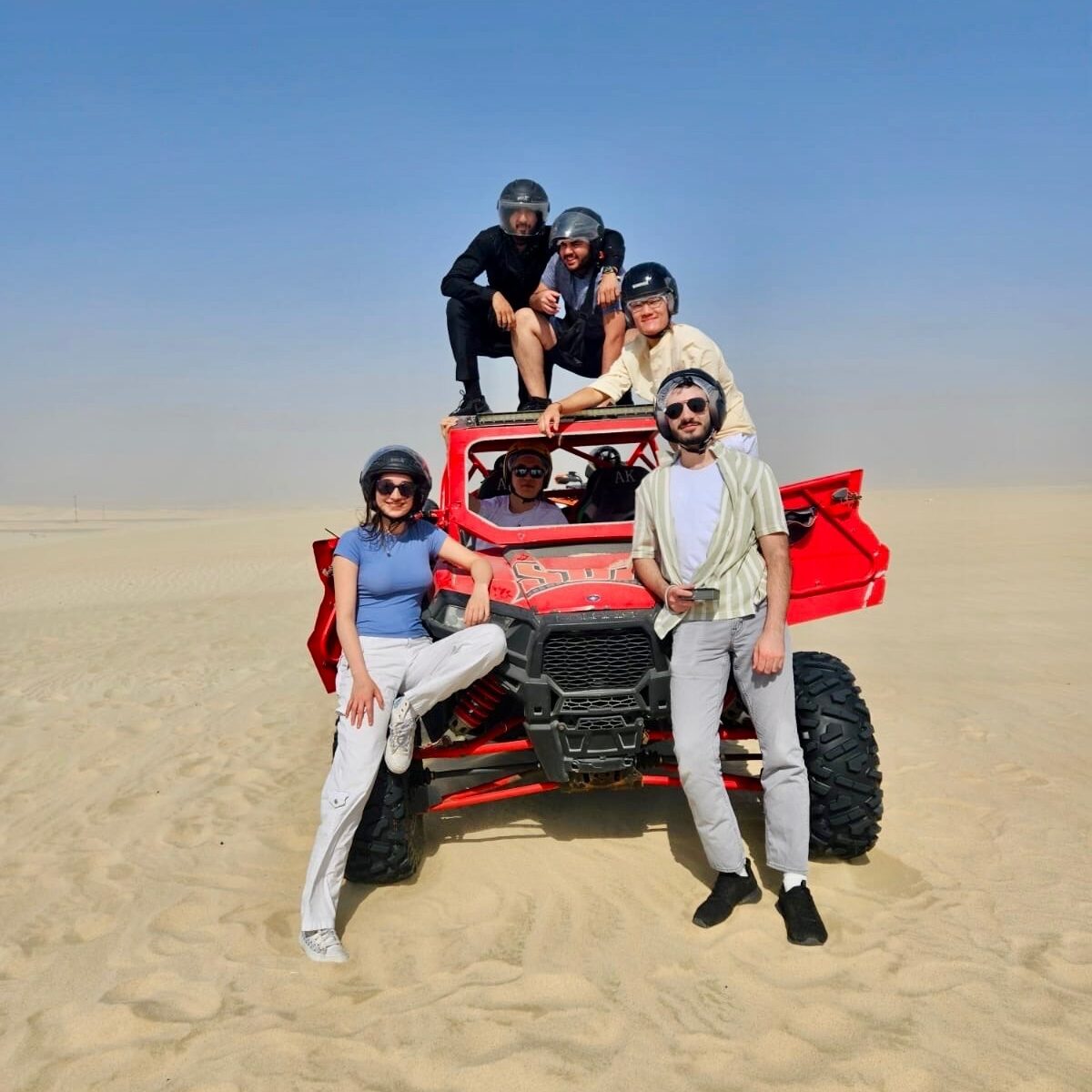This summer, Zara Hommez traveled from Princeton to Doha, Qatar, for an internship at the Qatar Computing Research Institute (QCRI), where she worked in the Humanitarian AI division. As a sophomore majoring in Operations Research and Financial Engineering (ORFE), she was drawn to the placement through Princeton’s International Internship Program (IIP) because it offered a rare blend of quantitative modeling, computer vision, and real-world impact, which is the exact intersection she hopes to pursue.
When browsing IIP opportunities, QCRI immediately stood out. Its mission to use data and AI to address global humanitarian challenges aligned perfectly with her academic interests in optimization, systems thinking, and applied machine learning. The chance to live in Doha, a rapidly growing, modern city at the heart of the Middle East, added an exciting cultural dimension she was eager to explore.
First Impressions
Landing in Doha, Zara was struck by the contrast between the desert landscape and the gleaming skyline. The heat was intense and far beyond anything she had experienced on the East Coast. However, the city’s rhythm soon began to make sense. Between navigating the metro, discovering new cafés, and finding her way around Education City, she gradually built a routine that made Doha feel like home.
Humanitarian AI in Action
Zara’s work at QCRI centered on computer vision, specifically on fine-tuning and evaluating vision–language models (VLMs) for satellite imagery. These models can identify and describe objects in images—an already challenging task—but satellite data adds another layer of complexity with its low granularity and abstract visual patterns.
Her project focused on a real-world problem: rapid disaster assessment. In many crises, from wildfires to floods, there is often a damaging delay between when a disaster occurs and when responders receive critical information. Zara explored how VLMs could shorten this gap by analyzing satellite images in real time.
For example, instead of waiting for manual reports, a well-tuned model could immediately detect how many homes were damaged in a wildfire or identify blocked roads that would hinder rescue vehicles. To push these models closer to practical deployment, Zara fine-tuned them using Los Angeles wildfire datasets, teaching them to recognize debris, burned structures, and other markers of destruction.
“It was exciting to work in a space where new models were being released even as I was working,” she reflected. Her mentors encouraged independence while offering thoughtful guidance, helping her navigate the fast-moving, research-heavy environment.
Life in Doha
Outside the lab, Zara found herself falling in love with Qatar’s culture and community. She explored Doha on rented bikes, sped over desert dunes on sand buggies, and went go-karting (where she quickly discovered that racing was not her strongest skill). She wandered through the city’s enormous malls, ate late dinners with friends, and had long conversations with Qatari interns about life, culture, and tradition.
One of the most meaningful moments came when a fellow intern gifted her an embroidered Quran to take back to Princeton, which is a gesture she still cherishes.
Lessons Learned
Zara’s summer was marked by both professional and personal growth. She learned to navigate spaces where she was sometimes the only woman, turning initial intimidation into confidence and independence. She also became more aware of her technical gaps, but instead of shying away, she treated them as opportunities to ask questions and strengthen her skills.
“Being surrounded by senior interns who seized every opportunity was incredibly inspiring,” she said. “It taught me to speak up, ask questions, and trust that I deserved a seat at the table.”
Their boldness helped her embrace the idea that uncertainty is a natural part of learning. Zara also learned how to advance her research during meetings, by articulating her ideas clearly while valuing her mentors’ guidance. Balancing confidence with openness became one of the most transformative aspects of her time at QCRI.
Looking Forward
By the end of the summer, Zara felt she had grown in every direction: technically, culturally, and personally. Her time at QCRI reinforced her passion for using data-driven tools to address global challenges and showed her what thoughtful, impactful research looks like in practice. Whether she continues in humanitarian AI, optimization, or another ORFE pathway, she plans to carry the lessons from Doha into every project she takes on.
In her own words: “This internship taught me that research isn’t just about solving problems, but about having the courage to learn out loud, to collaborate deeply, and to connect the technical with the human.”
— Aishah Shahid, Engineering Correspondent





